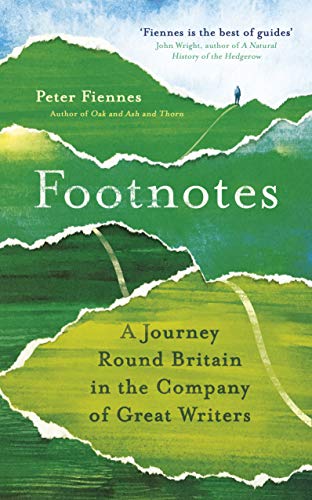Why a Booktrail?
1000s – 2000s: Follow in the footsteps of writers, spiritualists, economists, farmers, churchmen and artists…

1000s – 2000s: Follow in the footsteps of writers, spiritualists, economists, farmers, churchmen and artists…
In each walk, a scene. In each journey, a story. To tread any well-travelled path is to step upon layers of history and to add to them. What was seen by yesterday s rambler? Who were they? What was their Britain?
Peter Fiennes follows in the footsteps of writers, spiritualists, economists, farmers, churchmen and artists, from the eleventh century to the twentieth. Traversing past and present, he searches for signs of what his absent guides once saw and, through their words, opens up a new way of seeing what is there today. Footnotes is full of wonders and wanders, old stories and fresh connections, worn roads and wild places. It is a mesmerising quest to picture these isles anew.
Enid Blyton – Corfe Castle
Enid Blyton loved this castle and the jackdaws she wrote about are still here! Many people think this is inspiration for Kirrin Castle. The book Five on Finniston Farm is set in and around the town. Swanage and the Isle of Purbeck are the two places most associated with the famous author.
Wilkie Collins – Looe
Looe Wilkie wrote is ‘one of the prettiest places in England.’He visited at a time where there wa s boat race and a bazaar. A time where women sat with parasols and where you could eat ‘craggy lumps of plumcake.’
Ithell Colquhoun – Lamorna Valley
Ithell Colquhoun was one of the first prose writers to try and describe the deeper magic of a place.
She was all about looking at the landscape, its history, the feel, essence and emotion of it all; what we don’t always see.
Somerville & Ross – Welshpool
Edith and Martin left Welshpool abruptly (there are no suburbs’), breezing along the ‘white road stretching westward into the unknown’. The sun blazed from a cloudless sky, the hedgerows were soft and drowsy with dog roses and elder-bushes of every shad of pink and cream, the honeysuckle flowered in thickets and intoxicating perfumes filled the air.’
Charles Dickens – Gad’s Hill
The place associated with Charles Dickens. The writer bought the house in 1856 and lived there until his death in 1870. Whilst here, Dickens wrote his last four novels, including Great Expectations and A Tale of Two Cities. He was working on his final book , The Mystery of Edward Drood, when he died.
Destination: England, Scotland, Wales Author/guide: Peter Fiennes Departure Time: 2000s
Back to Results